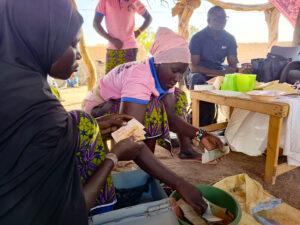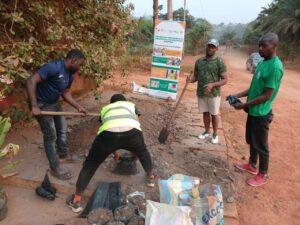Inades-Formation’s General Secretariat organized an inter-NB capacity-building workshop for National Office (NO) teams on seed security assessment (SSE) and the establishment of community seed banks. It took place from July 3 to 7, 2022 in Côte d’Ivoire.
In many African countries, there is little or no policy and/or legal recognition of peasant seed systems. As a result, farmers are increasingly dependent on industrial seeds, which are controlled by commercial interests and often unsuited to the local environment. They lose control over their seeds and the knowledge associated with them. This situation is leading to the erosion of African farmers’ seed heritage, and raises the spectre of famine in African countries.
To respond to this situation, a number of civil society organizations, notably USC Canada, have developed original approaches based on what is known as the “Farmers’ Seed Security Assessment Methodology”.
This tool is designed to evaluate all aspects of formal and farmer seed systems. It provides a comprehensive understanding of local seed security, identifying both challenges and opportunities for improvement.
Inades-Formation, for its part, is committed to promoting farmers’ seeds through appropriate strategies for conserving local varieties and preserving natural resources and their productivity for future generations. He has developed the Entreprenariat semencier paysan (ESP) model, an effective and adapted solution for seed production and distribution, and for promoting farmers’ autonomy over seeds. To manage the seeds produced, particularly in terms of conservation and restoration, it is increasingly necessary to develop community seed banks.
This is why the Inades-Formation General Secretariat wants to give National Office (NO) teams the opportunity to master seed security assessment tools and the development of community seed banks.
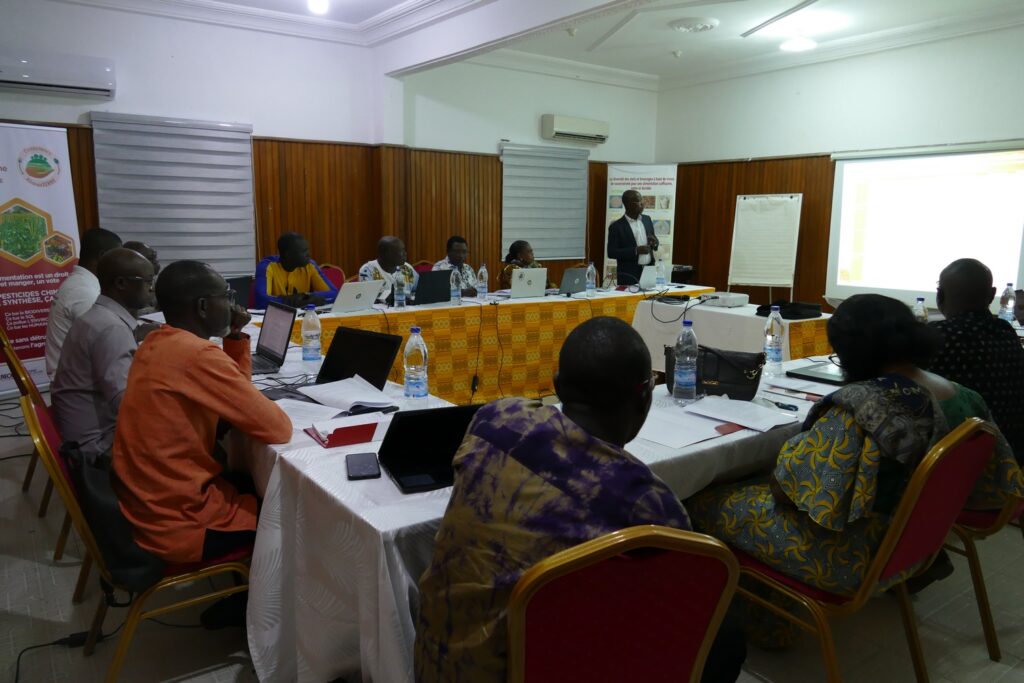
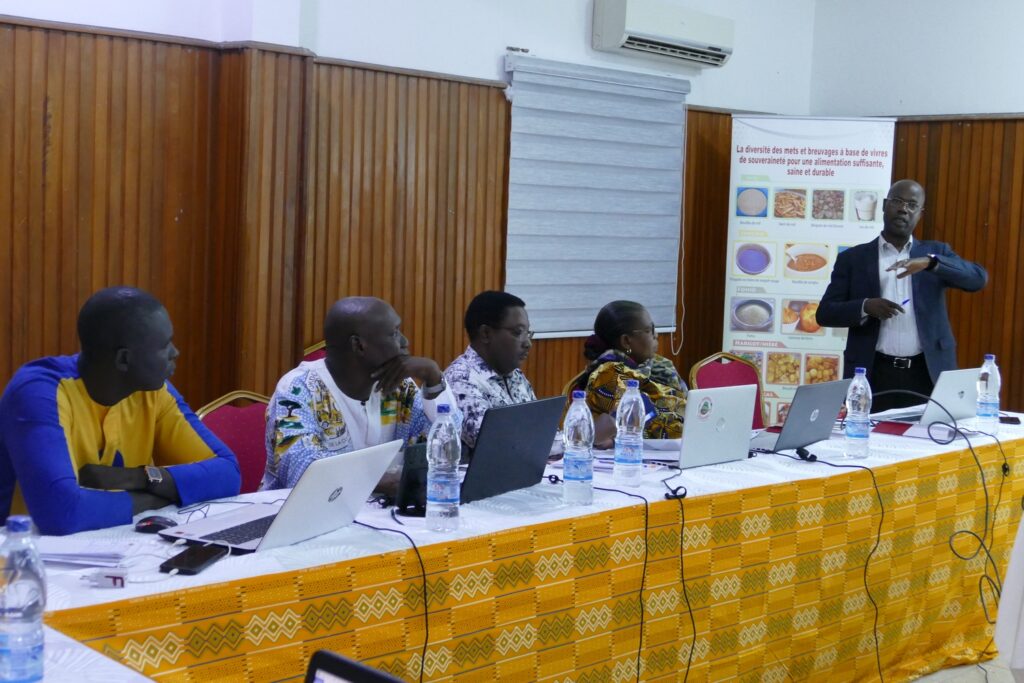
The training workshop brought together 14 participants, representing the (08) National Offices (Burkina Faso, Burundi, Cameroon, Côte d’Ivoire, Congo DR, Rwanda, Chad and Togo), the General Secretariat and partners working on seed issues.
It took place in two stages: a theoretical stage in Abidjan, and a practical stage in Bouaké, in the Marabadiassa locality.
In his opening remarks, the General Secretary pointed out that SSE is a tool that will enable us to truly confirm farmers’ needs in the seed sector. He stressed the need to promote this approach in the various areas where Inades-Formation operates.
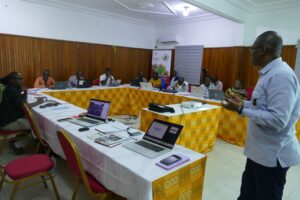
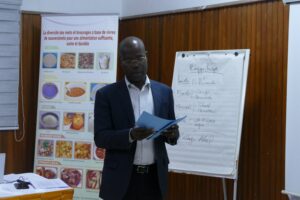
The training was provided by the General Secretary, Mr Sena Adessou, and Mr Alphonse Kouamé, Food Systems Project Manager.
Farmers’ seed security” is when farmers have access, at the time of planting, to good quality, affordable seeds that correspond to their choice and socio-cultural needs, and are adapted to their production environment.
Participants addressed the following modules: the conceptual framework and methodology of seed security assessment and action planning, the design of seed security assessment methods and tools adapted to local communities, methods and tools for data analysis to generate results that can be used to design seed security action plans, methods for developing a seed security action plan, the contours of community seed bank development.
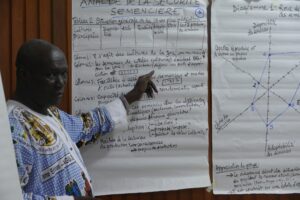
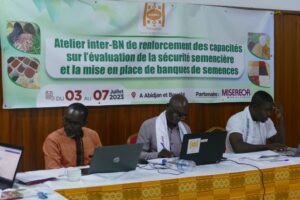
After three days’ training in Abidjan, they travelled to the Bouaké region, in the Marabadiassa locality, for practical exercises. There they met agricultural cooperatives with whom they carried out various exercises.
The workshop ended on July 7, and each participant was able to return to his or her own country with the new knowledge acquired, to be shared with local teams and put to good use in building the intervention plans of their National Office (NO).
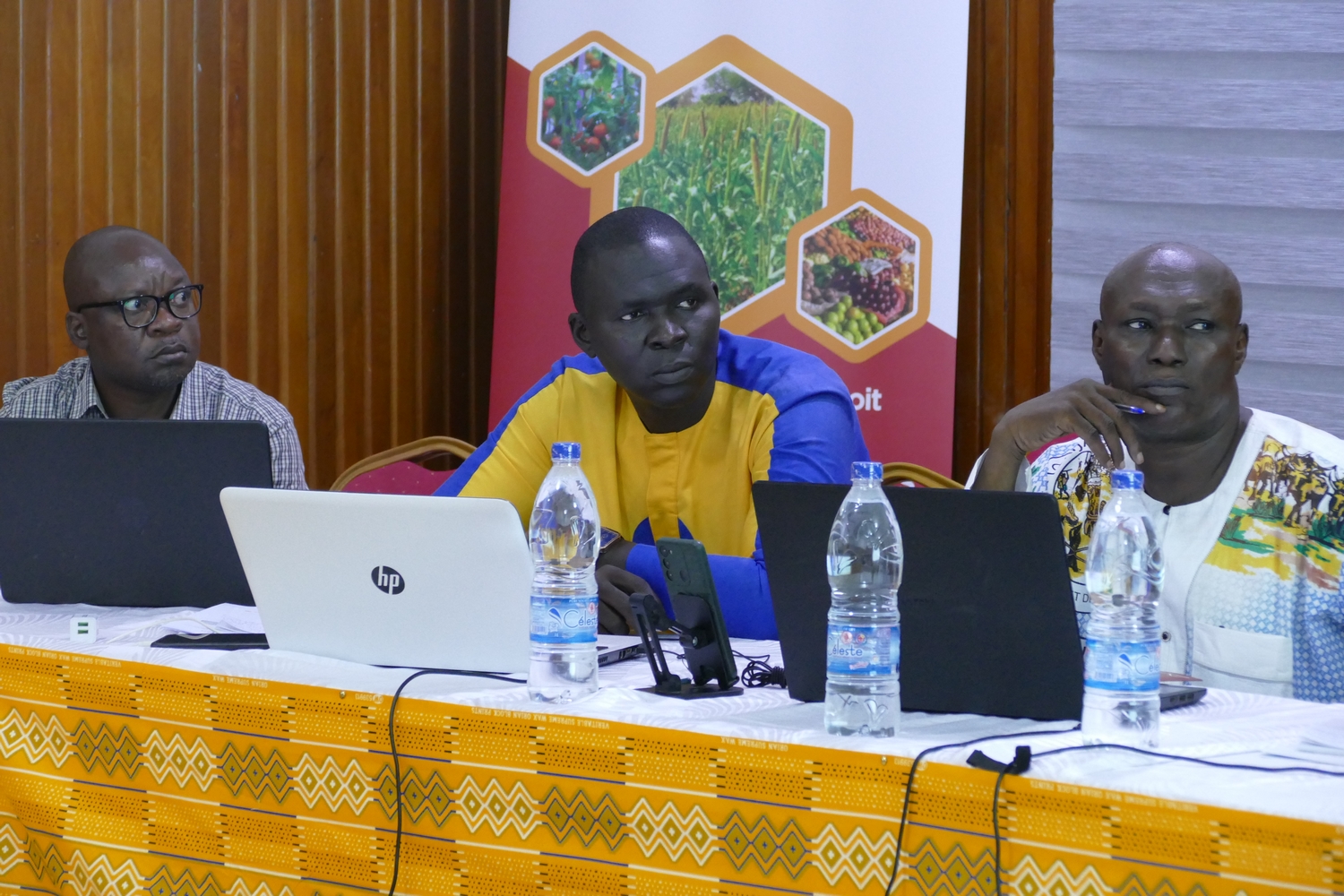
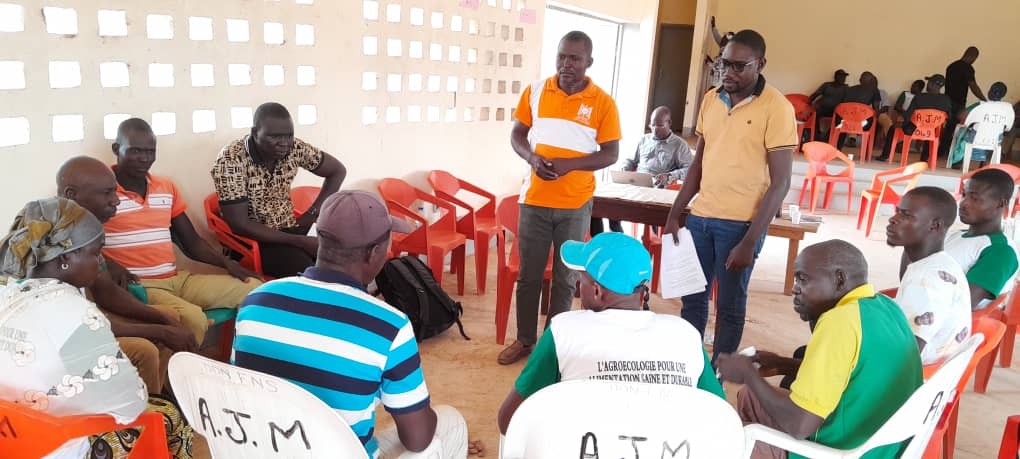
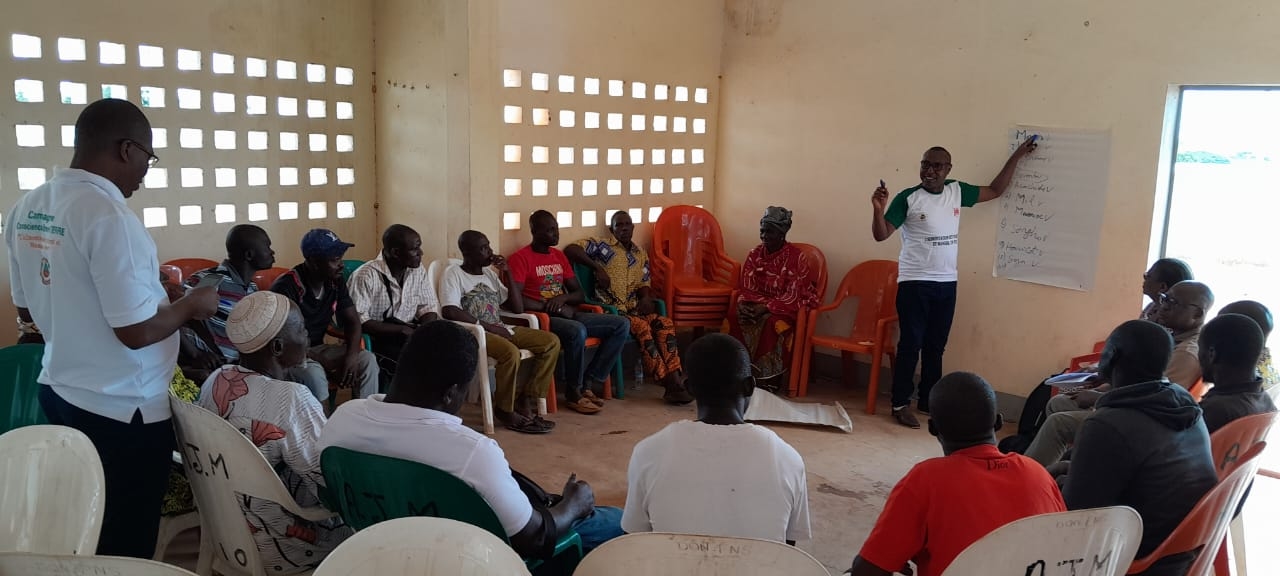
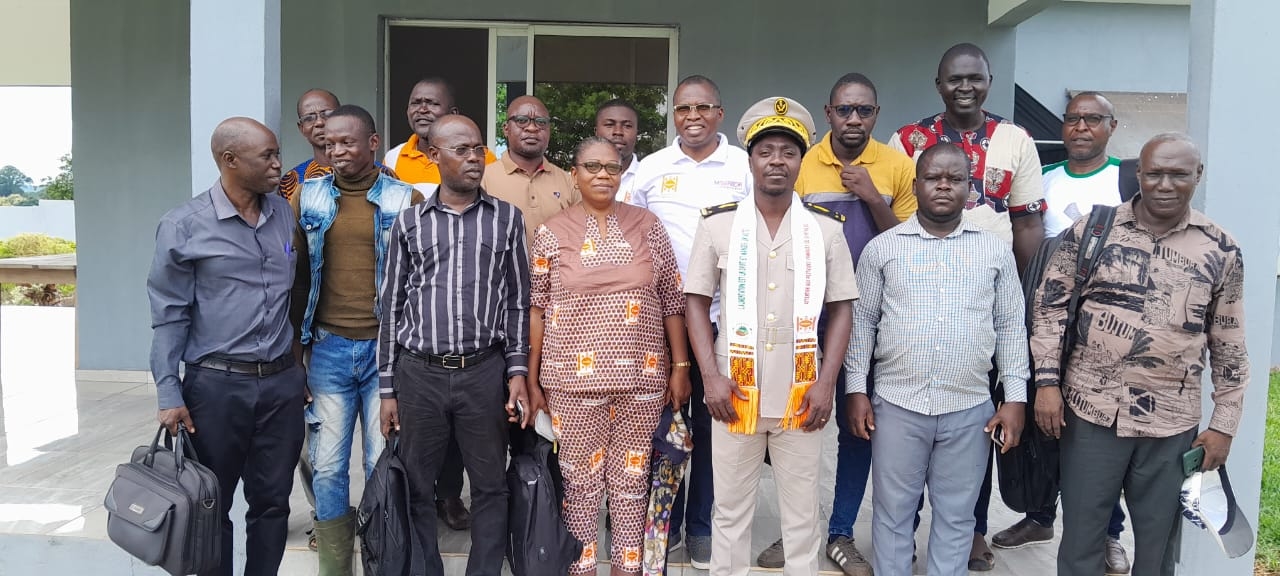
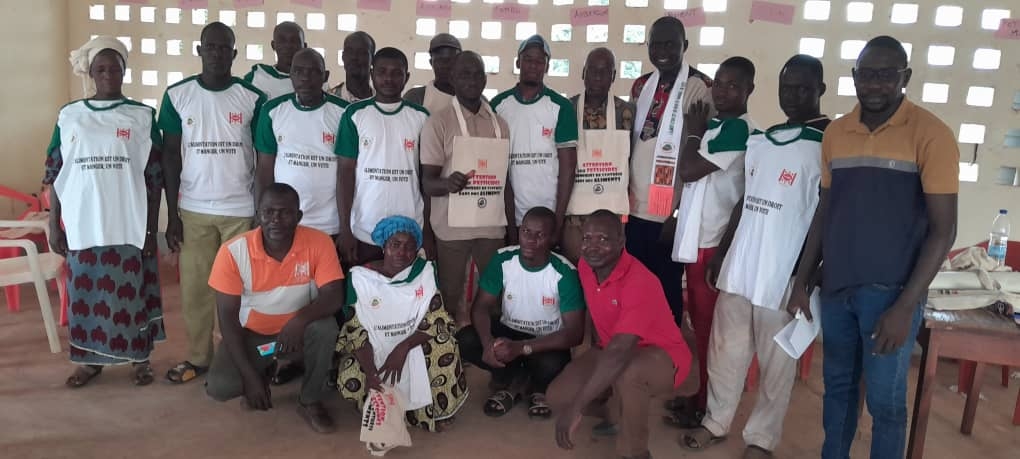
Communication Secrétariat Général


